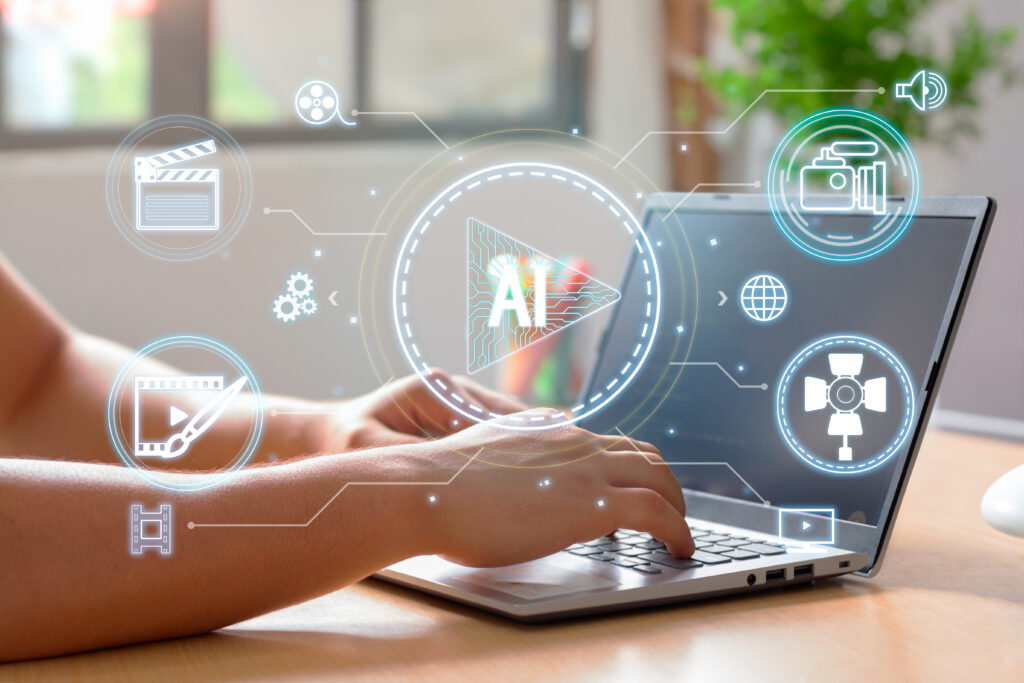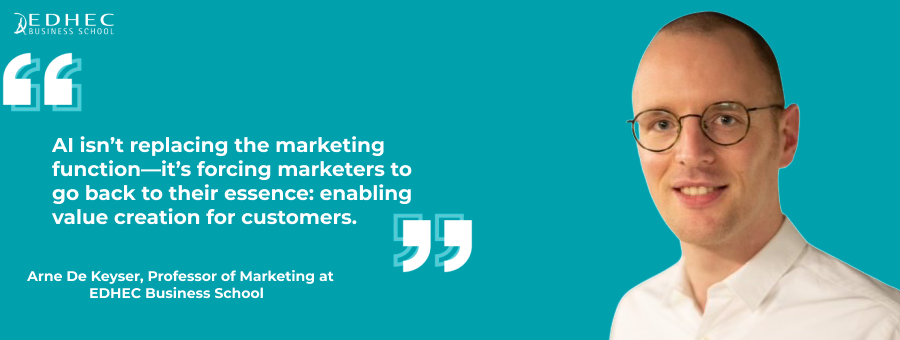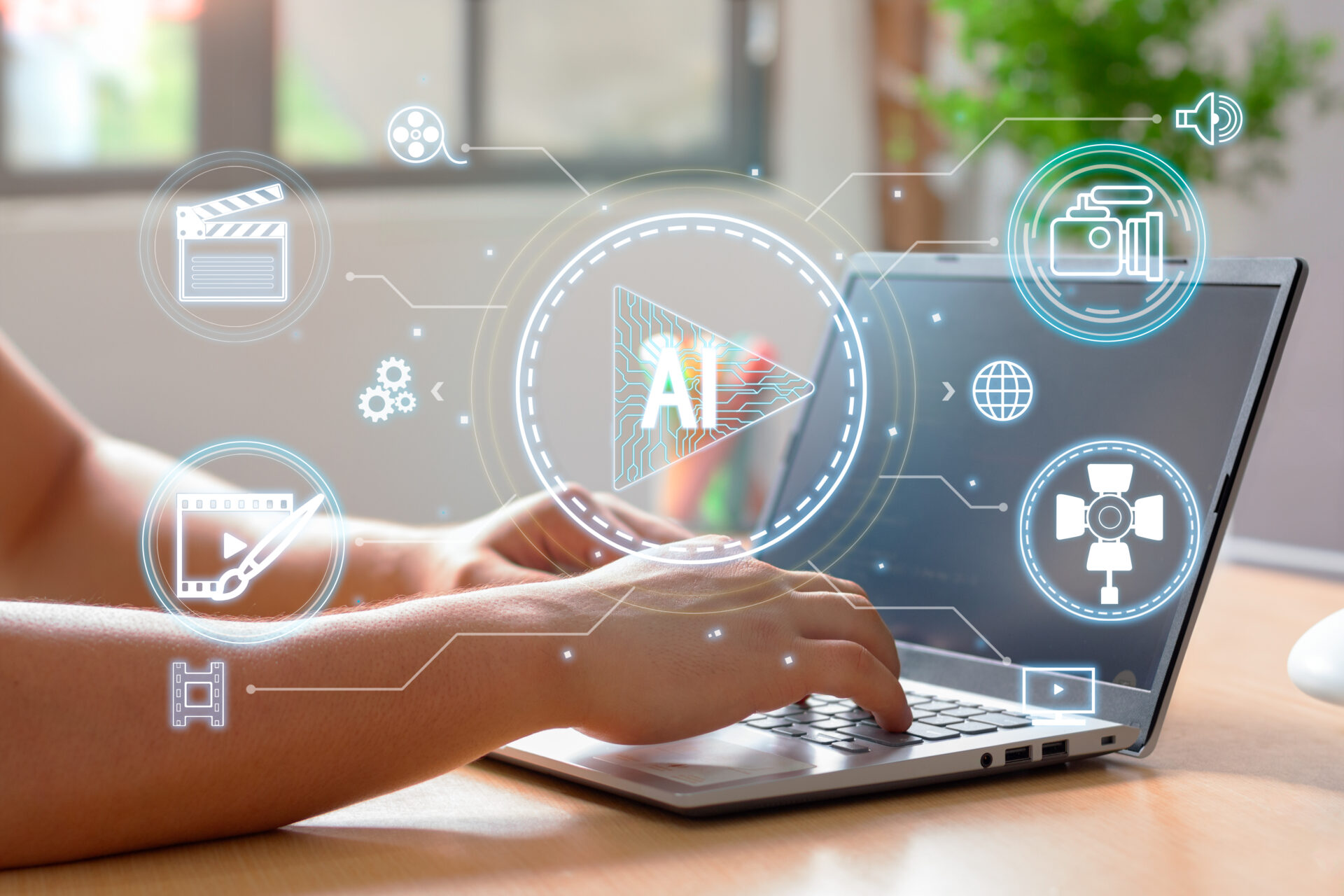
Artificial Intelligence in Marketing: Key Insights and Statistics
Insights and Overview
A recent SAS survey highlights the growing impact of Generative AI (GenAI) in marketing: 61% of respondents believe it will enhance customer personalisation and engagement, while 58% see it as a driver of innovation. Notably, 90% of businesses have already allocated a dedicated budget for GenAI in the upcoming fiscal year, highlighting its rapid adoption and strategic importance.
The impact of GenAI in marketing is already substantial:
- 75% of marketing departments are using GenAI in some capacity
- 10% have fully implemented GenAI into their strategies
- 65% are currently experimenting with GenAI tools
But what does this mean for marketing professionals? Is AI a game-changer or a disruptor? Keep reading to explore the intersection of marketing and AI, the latest trends in GenAI, and the tools that are shaping the future of the industry.
What Is Marketing?
Before exploring the future of marketing and its intersection with AI, it’s essential to understand what marketing entails. Marketing is, at its core, about addressing customer needs and enabling value creation through goods, services, and experiences. It encompasses activities such as market research and analytics, brand positioning, communication, developing and launching new products in the market, and creating distribution channels.
In today’s digital age, marketing is increasingly data-driven, leveraging technology to target audiences with precision and personalisation. With AI-powered tools, companies can now automate processes, predict consumer behaviour, and create hyper-personalised experiences—a shift that is redefining the industry.
Strategic vs Tactical Marketing: How AI Supports Both
AI tools are impacting both levels of marketing:
- Strategic Marketing Activities
Making decisions and taking actions that build a lasting competitive edge in customers’ minds. - Tactical Marketing Activities
Turning strategy into action through concrete marketing activities.
This distinction helps clarify how AI supports not only planning and decision-making (e.g., predictive analytics) but also execution (e.g., automated ad campaigns and content generation).
DISCOVER EDHEC ONLINE MSc Strategic Marketing
What is AI?
Artificial Intelligence (AI) refers to machine-based systems that can perform tasks that typically require human intelligence—such as learning, problem-solving, and decision-making.
One of the most discussed developments in AI is Generative AI (GenAI), which goes beyond automation and actively creates content, designs campaigns, and even generates marketing strategies.
GenAI uses machine learning models to produce human-like text, images, and videos. Companies are rapidly integrating GenAI into their marketing strategies to enhance efficiency, reduce costs, and boost creativity.
The Role of (Gen)AI: Augmentation vs Substitution
Understanding the role of AI in marketing means recognising how it supports or replaces human activity. GenAI can play two main roles:
Augmentation: Involves assisting and complementing human actors to achieve their goals more efficiently, cost-effectively, or with higher quality.
Substitution: Refers to the use of AI to replace and automate human behaviour to achieve a specific goal.
This distinction helps explain both the potential and the limits of GenAI in the marketing world—while some tasks can be automated, many still benefit from the unique creativity and decision-making of human marketers.
How Is AI Used in Marketing?
The use of artificial intelligence in marketing has grown significantly, allowing businesses to enhance consumer marketing strategies, automate workflows, and improve personalisation. AI-driven tools help marketers make data-backed decisions, optimise advertising strategies, and improve customer engagement.
Here are some common applications of AI in marketing:
Content creation: Generating images and videos for ads, writing social media posts, personalising emails, and more
Customer service: Responding to FAQs, offering 24/7 support, and serving as a personal assistant via chatbots or voice AI
Marketing research: Conducting trend analysis, summarising reports, and performing basic competitor analysis
Will GenAI Threaten the Role of Marketing?
During the webinar, Professor Arne De Keyser raised an important question: Will GenAI make the marketing function more or less important in the future?
The majority of participants believed it would become more important. However, according to Professor Arne, both perspectives have validity. While some aspects of marketing will gain significance, others may become less central and less human.
While AI will partly take over various tactical marketing tasks, such as content creation, ad development, etc., true competitive advantage won’t come from AI tools themselves—since they are widely accessible. Instead, real differentiation will stem from the strategic choices organisations make and how marketers collaborate with AI to elevate their business and unlock additional value for customer.
AI in Marketing: A Catalyst for Transformation, Not a Threat
As AI reshapes the marketing landscape, it doesn’t replace the marketing function—it enhances it. Professor Arne De Keyser shared a key takeaway during the webinar: Marketers must return to their core mission: enabling value creation for customers.
To do so, organisations will need to sharpen their answers to fundamental questions:
- Who are our customers, and what drives their decisions?
- What value do we enable for them (e.g., cost savings, convenience, status, sustainability, aesthetics)?
- What is our competitive advantage, and how can we make it sustainable?
- How do we differentiate through our offering, brand, and customer relationships?

Want to watch the full webinar?
Access the replay
Marketers who embrace AI, develop data-driven skills, and adapt to evolving trends will be well-positioned for success.
One of the biggest concerns is how to stand out in a landscape where all organisations have access to the same AI tools. The real differentiator will be human talent and creativity—the ability to go beyond automation and craft unique, strategic marketing approaches. This shift highlights the growing importance of strategic marketing, where the role of human marketers is not substituted but augmented by AI.
Arne continues, emphasising the evolving role of marketers: “The future is about the human marketer augmented with AI, and that’s where we are going to make a difference.”
For marketers to thrive, they need a well-rounded skill set, combining:
- A strong understanding of consumer behaviour
- Expertise in decision-making psychology
- The ability to leverage AI effectively
How can we strategically shape our organisations to be more customer-centric? EDHEC’s Online MSc in Strategic Marketing equips professionals with the knowledge and tools to adapt, innovate, and lead in AI-driven marketing.
Popular Digital Marketing Tools Powering AI Transformation
As AI adoption grows, several GenAI tools have become industry staples, enhancing various aspects of digital marketing:
- ChatGPT: Developed by OpenAI, ChatGPT is a conversational AI model that generates human-like text, aiding in content creation, customer interactions, and more.
- DALL·E: An AI system that generates high-quality images from textual descriptions, revolutionising visual content creation in marketing.
- Jasper AI: A content generation platform that assists marketers in creating blogs, emails, and ad copy, streamlining the content creation process.
- Synthesia: An AI-powered video creation software that turns text into video in minutes, producing realistic videos without the need for a production team, making video content more accessible.
- Claude: An advanced AI assistant designed for tasks such as writing, research, coding, and data analysis. It helps marketers with content generation, summarisation, and brainstorming ideas.
- DeepSeek: An AI model known for its deep reasoning capabilities, excelling in complex problem-solving and strategic decision-making, making it valuable for data-driven marketing insights.
- Qwen: A chatbot developed by Alibaba Cloud, designed to handle natural language conversations, content generation, and multilingual interactions. It helps businesses automate customer engagement and enhance digital marketing communication through AI-driven responses.
- Kling –A cutting-edge AI tool for creating imaginative images and videos, leveraging state-of-the-art generative AI methods to enhance visual storytelling in digital marketing.
These tools are changing the game by automating routine tasks, enhancing creativity, and improving efficiency—allowing marketers to focus on strategy and innovation.
What Is the Best Example of AI in Marketing?
There are several AI applications in marketing, and many brands are successfully launching AI-powered campaigns to optimise their strategies and enhance customer experiences. However, as these technologies become more visible—particularly in creative areas like ad design or content generation—they can sometimes spark debates among the public. Questions around authenticity, creativity, and the role of human input often arise, highlighting the delicate balance between innovation and audience expectations.
Brands Successfully Using AI-Powered Marketing
Several leading companies are leveraging AI to revolutionise their marketing efforts and drive higher engagement:
- Coca-Cola’s AI-Generated Ad Campaigns: Coca-Cola has experimented with AI-driven ad creation, generating promotional content with machine learning. However, this sparked debates on the balance between creativity and automation.
- Taco Bell & KFC’s AI-Powered Marketing Strategies: The Yum! Brands parent company has utilised AI-driven customer insights to refine their marketing campaigns and drive customer engagement.
- Klarna’s AI-Driven Customer Support: Klarna, a leading fintech company, implemented an AI assistant that handled two-thirds of customer service chats in its first month, showcasing how AI is enhancing efficiency.
- AI Chatbots Enhancing Customer Interaction and Empathy: A study published in JAMA Internal Medicine compared AI chatbot responses to physician responses on a public social media forum. Findings revealed that chatbot responses were rated:
- 3.6 times higher in quality compared to human responses
- 9.8 times more empathetic than physician responses
The Challenges and Ethical Considerations
While AI presents exciting opportunities, it also raises challenges:
- Bias in AI Algorithms: AI models can inherit biases from the data they are trained on, leading to ethical concerns regarding fairness and representation in marketing.
- Consumer Trust & Transparency: As AI takes a more prominent role in marketing, customers may question the authenticity of brand messaging. Marketers must ensure transparency in AI-driven strategies to maintain trust.
- The Future of Human Creativity: While AI enhances efficiency, it cannot replace human creativity and emotional intelligence—essential elements of effective marketing. The key lies in finding the right balance between automation and human input.
How to Stay Ahead: Upskilling for the AI Era
AI Marketing Course: Explore the Degrees at EDHEC
To thrive in the AI-driven marketing landscape, professionals must embrace continuous learning. EDHEC’s online programs are designed to equip students with the latest skills:


